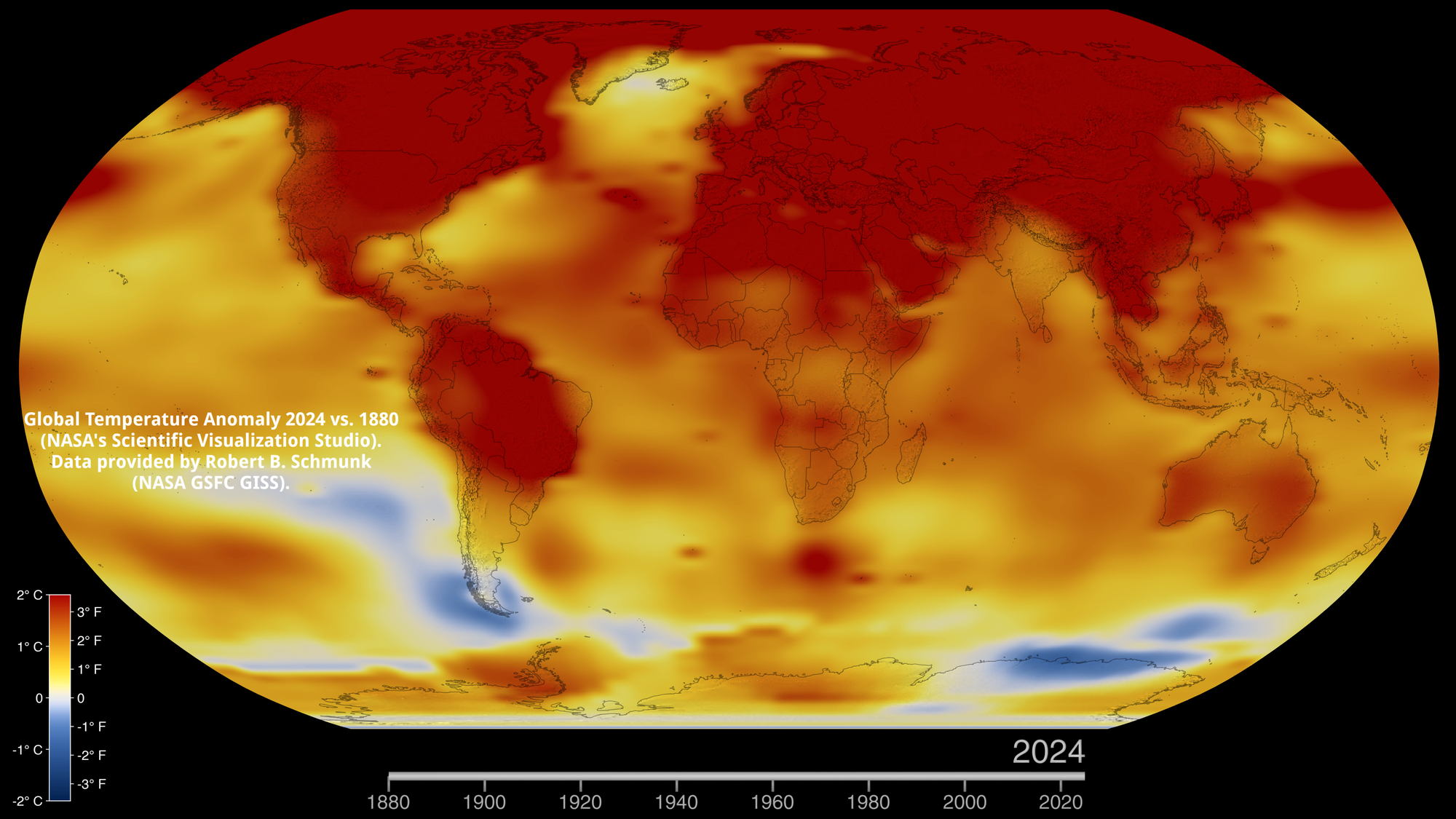Launching CoTerran, a new advisory focused on risks at the nexus of climate and security.
I'm excited to kick-off a new platform and organization, today, to help build resilience to the destabilizing risks driven by climate change:
CoTerran[1], a climate and security advisory.
CoTerran's products and services, detailed below, will aim to help unpack these links, centred around co-developed analysis, and cross-cutting dialogue among experts and decision-makers, to support partners and clients.
I've spent my career focused at the nexus of climate and security, and it's been energizing to set this platform up. I'm keen to share how CoTerran will be fitting into and helping advance the current climate and security ecosystem.
Please read on to learn more, and subscribe at the link below for regular updates and analysis.
Climate disruption is the most fundamental threat to global peace and security
We are increasingly aware of the compounding, cascading, and concurrent threats amplified by climate change.
As a “threat multiplier”, climate raises the temperature and pressure of existing challenges, and indirectly generates new complexities, by disrupting longstanding and predictable patterns across trade, finance, food, energy, and health systems.
There is growing work to understand and develop solutions at this cross-cutting nexus of climate and security globally, with rising interest among governments, multinational organizations, businesses, and local communities. Climate resilience is increasingly seen as a critical task not just for governments, but for the private sector - while the energy security benefits of enhancing renewable deployments are also being profiled more and more among the broader climate community.
This matches the high pace of activity in this space, noting so many developments in Australia and abroad in just the last few months:
- Australia released its National Climate Risk Assessment, outlining the fundamental risks posed by climate change;
- The latest annual iterations of the Berlin Climate and Security Conference, and Montreal Climate Security Summit, were held;
- The Organization for Security Cooperation in Europe held discussions on ways it can support engagement on climate and security, while the Boe Declaration’s guiding focus for Pacific action on climate and security continues to drive new efforts;
- Key discussions on climate and security were held across Australia, including the Australian Security Leaders Climate Group's call for a climate-first foreign policy, Zali Stegall's push for a National Framework for Adaptation, and with events driven by adelphi, the Toda Peace Institute, and the Australian National University's Institute for Climate, Energy, and Disaster Solutions;
- And much, much more than I can cover here (all of which is exactly the kind of developments that will feature in a weekly newsletter that will be sent by CoTerran to subscribers).
It's worth pointing out that this activity and interest is growing despite a shift away from investing in proactive and preventative security policies.
This is no accident.
It is precisely because of concerted work by the global climate, peace, and security community to raise awareness, sustain momentum, and encourage new leaders to step up.
It's not hard to convince serious and strategic decision-makers to take this seriously. We have made encouraging headway on renewable deployments, and every fraction of a degree of future warming avoided is the cheapest and best way to lower future risk.
The risks of disruption, and urgency of building resilience, are mounting
The evidence is still stacking, though, that as global emissions continue their rise past the Paris Agreement limits in the coming decade, we have loaded the dice even against ourselves:
- Climate-amplified extremes are intensifying on the path to breaching the Paris Agreement's limits in the coming decade, with disasters becoming more frequent, concurrent, and costly;
- many climate models we have relied on for projecting future conditions appear to be underestimating how much energy the Earth is absorbing from greenhouse gases (already estimated at the equivalent of over 25 billion nuclear detonations since the 1970s);
- the prospect of overshoot (the full range of which is excellent covered by the overcast pod) and major planetary climate tipping points being breached is now a reality in our lifetimes, the consequences of which will exceed any of the worst case climate models; and
- in this era of climate recalcitrance, climate misinformation is resurging, threatening not just our trajectory and future costs, but also foregoing economic and energy security.
To build security and resilience against this disrupted climate, we need every player and resource available working together, collaboratively.
That means we need to unpack and understand the substantial body of evidence, engage with the experts, and building collaborative dialogue across sectors, governments, and regions.
CoTerran's approach
The intent behind CoTerran is to plug into this ecosystem and help co-develop the cross-sectoral solutions we need for a resilient future.
As I build CoTerran (and the team), I intend to grow the services, products offered in future. The initial focus for services will centre around:
- Climate and security risk assessments;
- Facilitated dialogues and scenario-building workshops to co-develop solutions;
- Sectoral briefings and analysis.
In the coming weeks, I'm also looking forward to launching a series of publicly available products. Please get in touch if you’d like to collaborate in any capacity, and subscribe below to get updates by email on what CoTerran will be rolling out in the coming weeks:
- A weekly newsletter wrapping up analysis on the latest climate and security news and developments;
- A spotlight series that will kick-off with deeper analysis by unpacking, chapter-by-chapter, the international dimensions of climate risk in Australia's National Climate Risk Assessment;
- A regularly updated interactive cross-border climate risk map where I’ll be cataloguing shared cross-border climate risks;
- A platform to engage with the wider climate and security community, and evaluate the performance of forecasts and core assumptions we make, to better guide future analysis; and
- A discussion series with experts to unpack and explain what the climate risks to security are and why we need to take them seriously, and most importantly, what we can do about them.
For my part, I have spent my career and education focused on climate risks to security - first as a Canadian government climate policy analyst, and more recently in Australia’s defence and security thinktank community. I've been fortunate to collaborate with and learn from some of the smartest people I know - both in the Canadian Government, the Australian, Asian, and Pacific security ecosystems, and the global climate and security community.
It's exciting to get CoTerran out there into the world, and I'm looking forward to continue working alongside such a dedicated community to prepare ourselves for the disruptions to come.
With thanks to the many family members, friends, and colleagues who gave feedback on the platform in all its forms: Collaborative Terran (person of Earth) ↩︎

